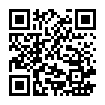Цифровое неравенство в современном российском обществе: уровни и социальные последствия
Научная статья
Аннотация
Литература
2. Александрова Т. В. Цифровое неравенство регионов России: причины, оценка, способы преодоления / Т. В. Александрова // Экономика и бизнес: теория и практика. – 2019. – № 8. – С. 9-12. – DOI 10.24411/2411-0450-2019-11101. – EDN YCOUAG.
3. Бурдье П. Формы капитала / П. Бурдье // Экономическая социология. – 2002. – Т. 3. – № 5. – С. 60-74. – EDN OYUVRD.
4. Гладилина И. П. Цифровые компетенции в структуре компетентностного подхода социального и профессионального становления личности / И. П. Гладилина, М. Е. Крылова // Современное педагогическое образование. – 2019. – № 11. – С. 13-15. – EDN UQYHWL.
5. Декларация принципов. Построение информационного общества – глобальная задача в новом тысячелетии // Библиотековедение. – 2005. – № 2. – С. 80-89. – EDN QRVVBN.
6. Динамика цифрового неравенства в России // Мониторинг общественного мнения: экономические и социальные перемены. – 2016. – № 5(135). – С. 162-181. – DOI 10.14515/monitoring.2016.5.10. – EDN YFOSRV.
7. Индикаторы цифровой экономики – 2020: статистический сборник. – Москва: НИУ ВШЭ, 2020. – URL: https://issek.hse.ru/mirror/pubs/share/387609461.PDF (дата обращения: 28.12.2022).
8. Норт Д. Институты, институциональные изменения и функционирование экономики / Д. Норт. – Москва: Фонд экономической книги «Начала», 1997. – 180 с. – (Современная институционально-эволюционная теория). – ISBN 5-88581-006-0. – EDN YQDVYE.
9. Окинавская Хартия глобального информационного общества (принята в 2000 г.) // Дипломатический вестник. – 2000. – № 8. – С. 51–56.
10. Паршукова Г. Б. Информационные компетентности личности. Диагностика и формирование / Г. Б. Паршукова, И. С. Пилко; Научный редактор: И. С. Пилко, Е. Б. Артемьева; Новосибирский государственный технический университет, ГПНТБ СО РАН. – Новосибирск: Новосибирский государственный технический университет, 2006. – 244 с. – ISBN 5-7782-0713-1. – EDN RSWWQT.
11. Положихина М. А. Информационно-цифровое неравенство как новый вид социально-экономической дифференциации общества / М. А. Положихина // Экономические и социальные проблемы России. – 2017. – № 2. – С. 119-142. – EDN YPQMLF.
12. Ревинова С. Ю. Цифровое неравенство в России: последствия для образования / С. Ю. Ревинова, И. В. Лазанюк // Бизнес. Образование. Экономика: сборник статей Международной научно-практической конференции, Минск, 07–08 апреля 2022 года. – Минск: Государственное учреждение образования «Институт бизнеса Белорусского государственного университета», 2022. – С. 208-214. – EDN URWUFJ.
13. Россия онлайн? Догнать нельзя отстать // The Boston Consulting Group. – 24 мая. – 2017. – URL: http://image-src.bcg.com/Images/BCG-Russia-Online_tcm27-152058.pdf (дата обращения: 11.01.2023).
14. Сорокин П. А. Человек. Цивилизация. Общество / П. А. Сорокин; [Общ. ред., сост. и предисл., с. 5-24, А. Ю. Согомонова]. – Москва: Политиздат, 1992. – 542 с. – ISBN 5-250-01297-3.
15. Торопова Н. В. Тенденции цифрового неравенства в цифровой экономике: особенности международной дискриминации / Н. В. Торопова, Е. С. Соколова, Ш. Р. Гусейнов // Экономика: вчера, сегодня, завтра. – 2020. – Т. 10. – № 8-1. – С. 456-463. – DOI 10.34670/AR.2020.37.94.052. – EDN BUJXHR.
16. Beck U. The Metamorphosis of the World: How Climate Change is Transforming Our Concept of the World / U. Beck // Cambridge, Malden: Polity, 2016. – 240 p.
17. Bimber B. Measuring the gender gap on the Internet / B. Bimber // Social science quarterly. – 2000. – Vol. 81. – № 3. – Pp. 868-876.
18. Castells M. The Internet Galaxy: Reflections on the Internet, Business, and Society / M. Castells // Oxford University Press, 2002. – 304 p.
19. La Rue F. Report of the special rapporteur on the promotion and protection of the right to freedom of opinion and expression / F. La Rue // UN General Assembly Human rights council, Seventeenth session. Geneva, 2011. – 22 p. – URL: http://www. ohchr.org/english/bodies/hrcouncil/docs/17session/a.hrc.17.27_en.pdf (дата обращения: 11.01.2023).
20. Norris P. Digital Divide: Civic Engagement, Information Poverty, and the Internet Worldwide / P. Norris // Cambridge: Cambridge University Press, 2001. – 330 р.
21. Wessels B. The reproduction and reconfiguration of inequality: Differentiation and class, status, and power in the dynamics of the digital divides / B. Wessels // The digital divide. The internet and social inequality in international perspective. New York: Routledge. – 2013. – Pp. 17-28.

Поступила: 20.12.2022
Опубликована: 17.02.2023





